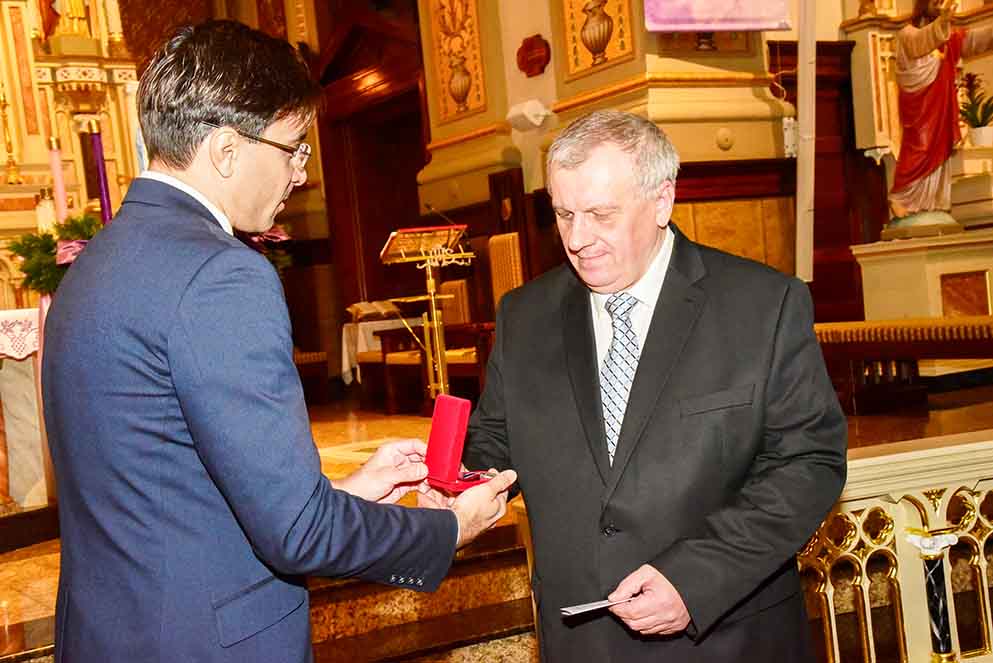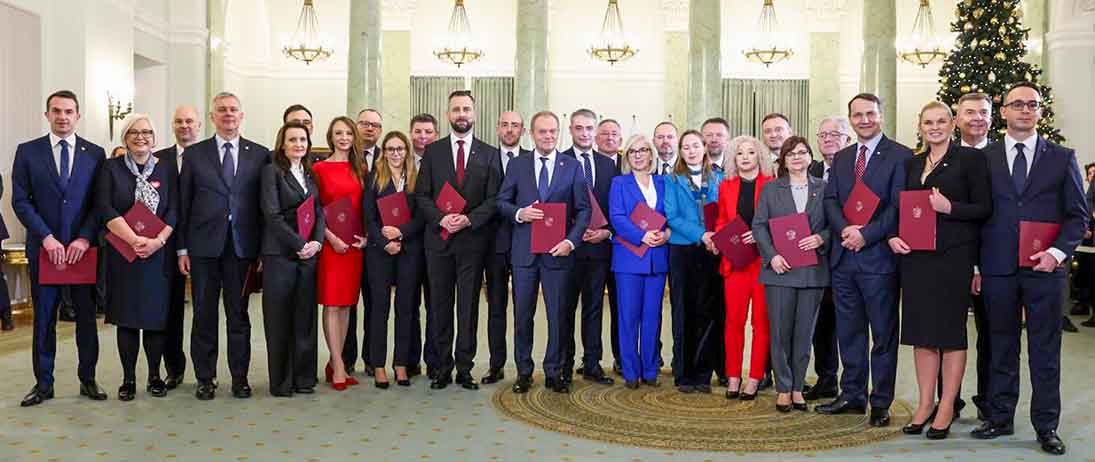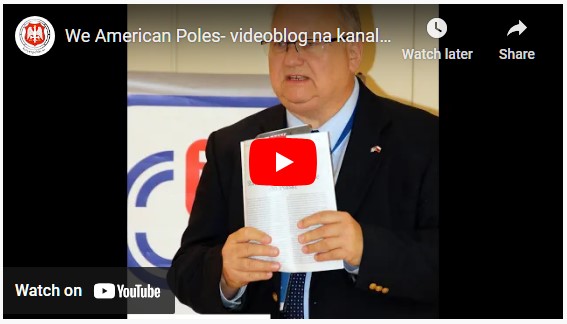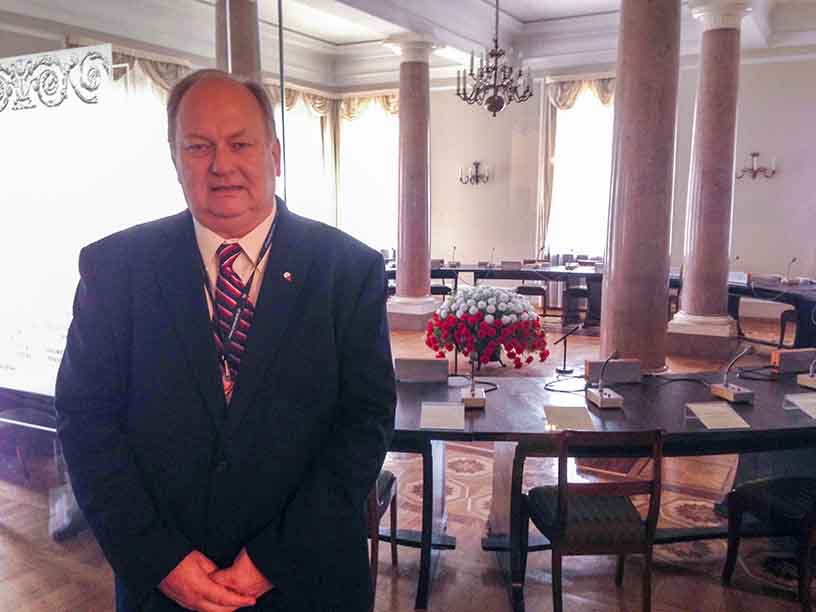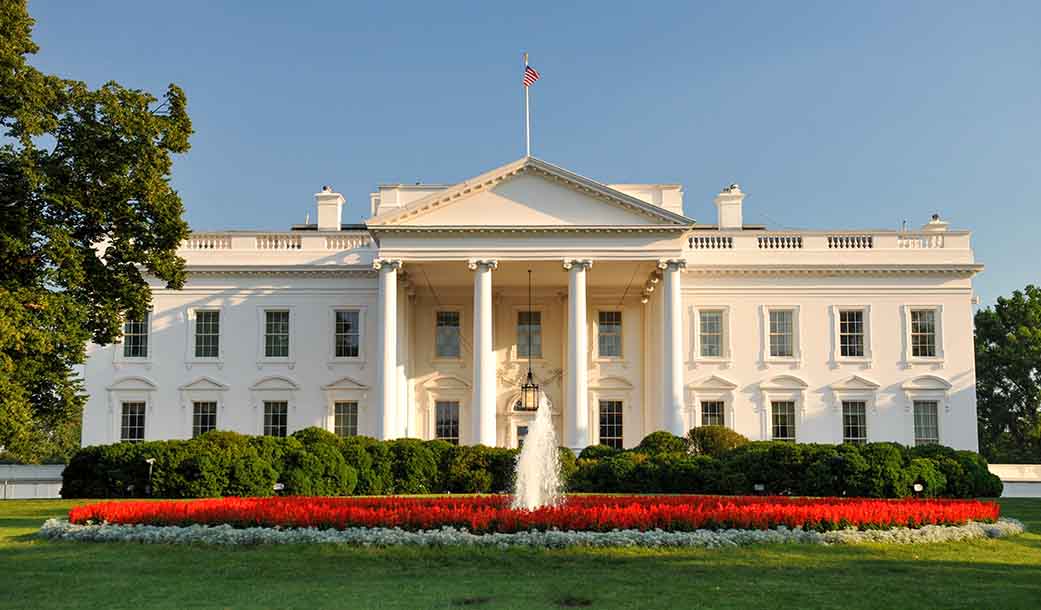CYPRIAN NORWID: God only knows how much harm and misery comes from not recognizing this part of Polish society, which is Emigration. Not recognizing, doing nothing to bring it back to the country. As if we were no longer needed by the country.
[Based on Kazimierz Braun's drama "The Return of Norwid"]
At the turn of June and July, two events dedicated to the Polish community took place in Warsaw. The first is the 6th Congress of the Polish Diaspora and Poles Living Abroad, and the second event is the 1st World Congress of Polish Education and Science Abroad. Both were scheduled quite unfortunately for the end of June and the beginning of July (when the prices of air tickets are the most expensive) and the proximity of these events allows us to draw quite logical conclusions that they could have cannibalized each other.
The Polonia Congress meticulously dealt with the "selection of participants" and it was not known to the end who was qualified and who was not. The program of the Congress was also not very well publicized. Over the last few years, the number of organizations, foundations, and associations dealing with the Polish community in the country is experiencing a renaissance. However, it is difficult to see actual representatives of the Polish community in the supervisory or program boards. Poland is probably the only country where such organizations are established. Other countries that have numerous diasporas cooperate with them through their diplomatic posts, communicate with them and also provide grants for activities.
All this is followed by the development of statism and the overgrowth of bureaucratic procedures that are not in line with the procedures in the countries of residence of the Polish community. For several years, as an editor of Kuryer Polski, I have been unable to explain to my American accountant why the settlements of grants in Poland can only be compared to a circus jump over several red-hot railings. But the joyful creativity of people who have never lived abroad lies precisely in the fact that they know everything best.
The beginnings of cooperation between the government of the Second Polish Republic and the Polish diaspora
Let me just remind you that the problem of treating the Polish community with disdain, and teaching them patriotism, dates back to the Sanacja government, where — during the Second World Congress of Poles from Abroad, on August 5, 1934 in Warsaw — a group of 40 delegates and organizations from the USA did not join Światpol — an organization gathering Polish organizations. At that time, the purpose of the Congress was to establish such an organization and to conduct the foreign policy of the Sanacja government by Światpol.
The government of the Republic of Poland was very keen on a coherent foreign policy. Why did the American Polonia refuse to participate in Światpol? The reason was obvious: no American organization — such as Polish diaspora organizations from the USA — could be associated with organizations created by the government resulting from the coup d'état that took place in Poland in 1926. This fact was conveniently ignored in the joyful activities of Światpol.
Thus, the achievements of the years directly after Poland's independence in 1918 were wasted, despite the state authorities of the Second Polish Republic pursuing a policy that favored Polish emigration.
The situation changed significantly after 1926, when the Sanacja came to power in Poland. As Professor Wojciech Skóra — a Polish historian from the Pomeranian Academy in Słupsk — writes, care for the Polish diaspora and Polish citizens in the USA has deteriorated compared to the early 1920s, because in 1922 there were 6 consular posts in the United States, and in the 1930s only 3: in Chicago, Pittsburgh and New York, and the embassy in Washington. In Poland's foreign trade, in 1935, the United States was the third largest partner in terms of exchange volume (after Great Britain and Germany). For the largest economic power, inhabited by 126 million citizens (including almost 4 million Polish diaspora), it was definitely not enough. Poland had the same number of consulates in Italy at that time.
Let us remind you that over 22,000,000 volunteers from America, like the army from Giewont, hearing the famous golden horn from Wyspiański's "The Wedding", came from across the ocean to fight for free Poland. The 70,000-strong "Blue Army" of General Haller was, for those times, well-equipped and well-trained. It had 120 tanks, 98 aircraft, engineer troops, instructors, cavalry, artillery, communications troops, 7 field hospitals, and very high morale of soldiers. The Hallers brought with them to Poland 10,000 horses and ammunition.
The further fate of the Blue Army is, unfortunately, a sophisticated political game of Józef Piłsudski. In June 1919, General Haller was deprived of command over the "blue" troops, which made his soldiers feel disappointed and cheated. The leadership of the Blue Army began to be replaced by loyal, legionary comrades-in-arms. The cup of bitterness was overflowing with the order of September 1, 1919, on the complete dissolution of the Army. Individual formations became part of other national military units. Polish volunteers from the United States were demobilized, which irritated the Polish community in America that had financed the "blues" from the beginning. From March 1920 to March 1921, about 12,000 "blue" Hallers sailed on ships to New York.
The situation of the demobilized soldiers of the Blue Army was very bad. Those of the Haller people from the USA, stuck in transit camps, emaciated, with the beginnings of typhus, were taken care of by the ship's doctors. The matter was discussed at the highest levels of American authorities. Julius Kahn, Congressman from California, and Congressman Kleczka, from Milwaukee, Wisconsin, took care of it. The issue of the return of demobilized volunteers was raised in the House of Representatives in the early 1920s.
This political mistake of the Marshal undermined the American Polonia's trust in him for years, and after the May coup d'état, caused the Polish community to distrust the authorities in Warsaw. Spectacular actions of Polish patriots in the USA, championed by Ignacy Jan Paderewski, led to the founding of the Herbert Hoover Institution and the Organization of the American Relief Effort in Poland (1919-1923). This US government organization, along with other organizations such as the Polish-American Committee for Aid to Children, donated $250 million to Poland.
During the investigations by Kuryer Polski, we managed to get to the calculations of Dr. Aleksander Rytel (famous founder of the Association of Polish Doctors in Chicago) on other fundraising events for Poland in the first years after the independence. Based on a study by Dr. Aleksander Rytel, the funds sent to Poland included: the National Fund, local collections, food parcels, money transfers, payments by consulates, money sent by banks, securities, a Polish 6% loan. Dollars brought by returning emigrants amount to approximately USD 100 million. These data refer only to the first years after Poland regained independence, but we must realize that the stream of dollars flowed to Poland until September 1939 and — according to World Bank data — transfer of about USD 900 million goes from the USA to Poland every year.
The 2nd World Congress of Poles from Abroad and the establishment of Światpol
The congress began on August 5, 1934 in Warsaw, and the closing ceremony took place on August 12, 1934 in Gdynia. It was attended by 171 people: 128 delegates from 20 countries, including 40 from the United States, 25 representatives of national institutions and 18 members of the Organizational Council of Poles Abroad. In total, 11,000 people came to Poland. The reunion was accompanied by: The 1st Rally of Polish Youth from Abroad — 3 thousand people (the 2nd Rally took place in August 1935, combined with the Scouting Rally in Spała) and the 1st Sports Games of Poles from Abroad (381 players and their families who took part in trips around the country). During the ceremony at Wawel, the World Association of Poles from Abroad (Światpol) was established, whose president was Władysław Raczkiewicz, then Marshal of the Polish Senate, and later President of the Republic of Poland in exile.
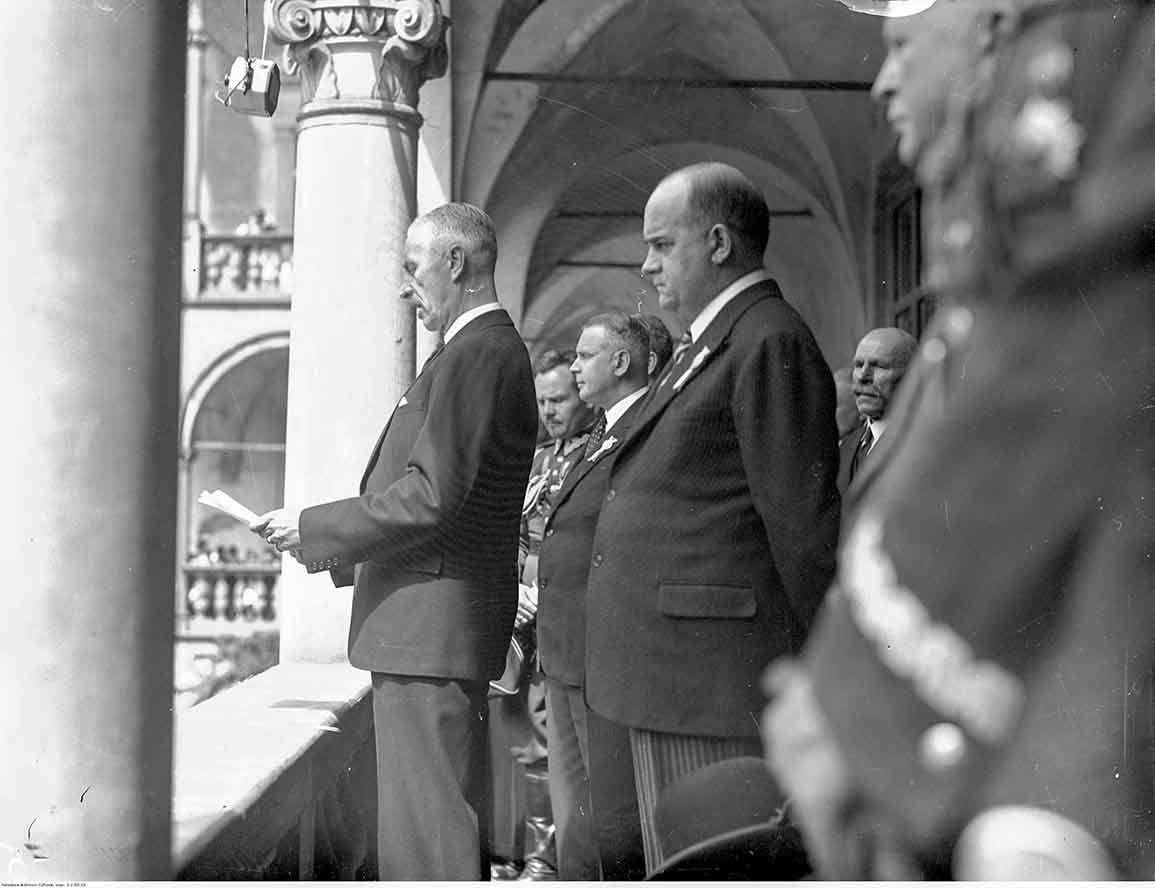
President of the World Association of Poles Abroad, Marshal of the Senate Władysław Raczkiewicz (first from the left) gives a speech to the participants of the convention gathered in the arcaded courtyard of the Wawel Royal Castle. The people visible include: the vice-president of the World Union of Poles from Abroad Bronisław Hełczyński (second from the right), censor of the Polish National Association Franciszek Świetlik (first from the right, in striped trousers), Colonel Marian Bolesławicz (third from the right, in a uniform). (Source: National Digital Archives)
It was managed by the Ministry of Foreign Affairs. In September 1933, Wiktor Tomir Drymmer became the head of the reorganized Department of Personnel of the Ministry of Foreign Affairs. He was a man completely subordinated to Józef Piłsudski. Both the government's emigration policy, and the personnel policy of the Ministry of Foreign Affairs were in one hand. Thus, a plan was quickly hatched in Warsaw to implement Polish foreign policy based on the Polish diaspora.
Everything would go perfectly, as planned in the Ministry of Foreign Affairs, all delegations were to join Światpol and create a single global organization for the Polish diaspora to implement the foreign policy of the Sanation government. However, the dean of the law school at Marquette University in Milwaukee spoke on this matter. What one of the then important leaders of the Polish American community said, went down in history as a goal for many important figures in the life of the Polish community in the USA. Franciszek Świetlik, a Milwaukee-born lawyer known in America, said at the time:
We are proud of our ancestors and we really want the young generation to keep their love for everything Polish in their hearts, but at the same time we feel that we can serve Poland well by taking an active and creative part in American life and culture. The higher the status we achieve in America as Americans, the more glory and benefit we will bring to the Polish nation from which our roots come.
His definition of who American Poles are is the definition that still applies today. We are Americans of Polish origin and although some of us have two passports, Polish and American, we can continue to serve Poland as our ancestors did in the USA.
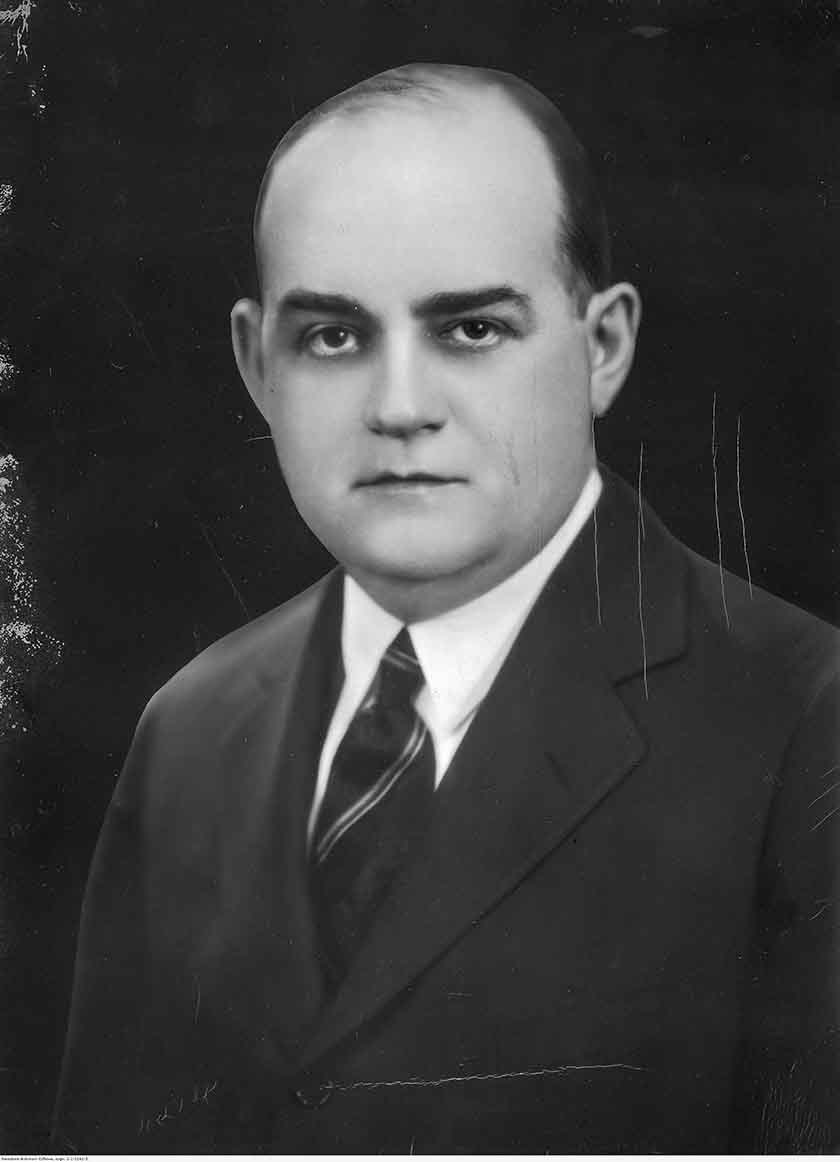
Franciszek Świetlik, portrait photo (Source: National Digital Archives)
Out of 40 delegates, no person or organization from the USA joined Światpol. This faction of the Polish community was not only the most numerous, but also the richest, with a complicated socio-professional structure. It was the only Polonia with well-formed, strong elites. There was a large and influential layer of the professional intelligentsia and relatively wealthy traders in the USA. There were many clergy, laity and religious. According to the Consul General of the Republic of Poland in Chicago, Dr. Wacław Gawroński, the Polish community in the USA in 1935 numbered about 4 million. people and had very formed elites: 250 journalists and 90 magazines, published in the United States and having a major impact on the course of life here; clergy, over 2,000 priests and 6,000 religious sisters - teachers in 832 parishes, about 1,500 people in religious congregations and about 120 clergy of the National Church - a total of about 10,000 people.
The remaining intelligentsia, constituting almost 1% of the emigrants in total, the number of which, if we include doctors, dentists, pharmacists, lawyers, engineers, teachers, musicians, officials, industrialists and some merchants, will be about 30,000 people. There are also large organizations: ZNP (300,000 members), ZPRK (170,000), and the Polish Women's Union (60,000 members), which together include about 500,000 people.
The goals set by the Ministry of Foreign Affairs have not been fully achieved, and the aspect of directing Polish diaspora policy from behind a desk in Warsaw has not brought the assumed victory. Attempts to teach the Polish community what is "the Polish raison d'etat as the highest value" by Sanacja diplomacy got stuck in misunderstanding of the Polish community.
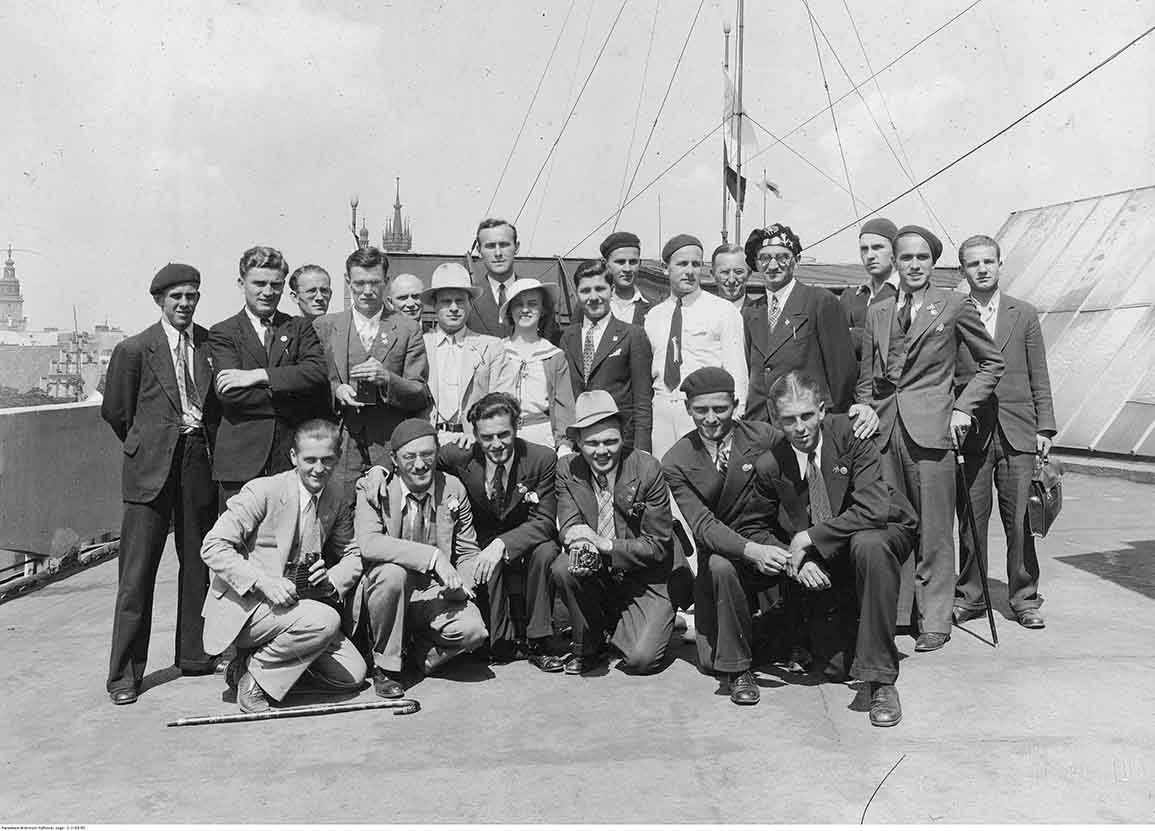
Participants of the convention from the United States and Canada on the roof of the Press Palace. (Source: National Digital Archives)
The entire history of Polish emigration shows that "the ability to put the Polish raison d'état in the highest place" existed many years before the creation of an independent Polish state.
The postulate of an “independent state” was put forward by the first National Congress of Poland in 1910. The National Department, the National Defense Committee, Sokół Polski, the Polish National Council, the magazine for Americans “Free Poland” and General Haller’s “Błękitna Armia” acted in favor of independence — where the vast majority were volunteers from the USA. However, the greatest achievement of Polish independence thought in America were the words and deeds of American President Thomas Woodrow Wilson, who in the 13th point of his program for the Versailles conference said:
An independent Polish state should be created, which should include territories inhabited by indisputably Polish populations, which should be guaranteed free and safe access to the sea, and whose political and economic independence and territorial integrity should be guaranteed by an international treaty.
It was the greatest success of Polish lobbying in the United States, which brought us independence. It was possible only as a result of developing the thesis of the 13th point, which was formed at many conferences, Polish American local parliaments, which took place in many American cities at the turn of 1910-1918. It was there that the Polish independence thought grew up, and that is where the 13th point of President Wilson's program was created. Ignacy Paderewski's direct contacts with President Wilson were also extremely important.
And what does it look like today?
About 20 million people of Polish descent live outside Poland. These are people who left the country or were born outside Poland, but show attachment to Polish origin and connections with Polishness.
For the last 100 years, the American Polonia has uncritically and unconditionally supported the Polish nation and state. According to the latest research by Dominik Stercula from Colorado State University, 95% of American Poles were born in the United States. In the last census, as many as 8,969,530 admitted to being of Polish descent — not by force, but voluntarily. However, their degree of acculturation, i.e. functioning in both cultures, requires separate research. However, let me make a few remarks in this regard.
Old Polonia vs. New Polonia is a very complicated relationship. New Polonia understands Old Polonia as Melchior Wańkowicz understood it, i.e. as a museum of sorts — stuffed cabbage, dumplings, sausage and polka. The old emigration often considers the New Polish diaspora, who speak with an accent, as people of a "different category", although the level of education of both groups indicates that the new emigration is definitely better educated and is also better prepared to play a culture-forming role in the USA.
The financial resources of the Polish American community from the data of the Polish & Slavic Credit Union speak of average savings per person at the level of $17,500. And these are only the savings of a selected group of 100,000 Poles from the New York, New Jersey and Chicago area. All you have to do is quickly multiply these amounts to get an astronomical amount of $1,750,000,000. Let us recall that the entire Polish diaspora in the USA is estimated at 10 million.
Every year, the Polish diaspora from the United States — not to mention other countries — sends about USD 900 million to Poland (World Bank data, compiled by the Migration Policy Institute). These funds are comparable to those invested by foreign companies in Poland. Preliminary estimates say that there are over 800 tenure-level scientists in the United States alone. From instructor to professor, this is a serious group of people with great intellectual potential that cannot be underestimated.
Polish scientists work at hundreds of universities around the world and this group should also be the driving force of development in Poland, and they should be sought after by Polish universities, research and development centers and various levels of government. But they shun the current leaders of American Polonia, not wanting to jeopardize their careers.
So who are the current leaders? "All-knowing, immortal and unsinkable" is the most common category of activists. They hold their positions since time immemorial. Their usual knowledge does not take into account the technology and rules of marketing. They have no vision for the future. They just endure. They love to be photographed with VIPs from Poland and they are eager for their promises. One can easily conclude that they are driving the nail into the coffin of Polonia.
Ideas of "Regulated Polonia"
The 6th Congress of the Polish Diaspora and Poles Abroad, and the 1st World Congress of Polish Education and Science Abroad, were important and necessary events, although they should be planned and announced at least six months in advance. You can't choose delegates or get rid of those who have something important to say, but whose ideas could cause controversy. The essence of the Polonia Congress as a form of the Polish Diaspora Sejm (parliament) is a free and uninhibited debate, with which the organizers have had clear problems for years. I leave the analysis of this situation to the Government of the Republic of Poland, because it finances these important events for Poland. However, it can be noted that for years the Polonia Convention has been attended mostly by the same people whom I described as "all-knowing, immortal and unsinkable".
In my opinion, the only idea that deserves attention at present is the idea of inscribing the 1/3 of the Polish nation into the constitution and returning full electoral rights to the Polish community, i.e. voting by correspondence and creating a special electoral district in Poland for the Polish community and Poles from abroad, where it could choose its representatives to the House and Senate. If the Polish state wants to seriously arrange its cooperation with the Polish diaspora, then this is the right direction for the participation of the Polish diaspora in the political and social life of Poland. Examples from other countries show the benefits that a state can derive from proper relations with its diaspora.
As for the resolution of the Congress of Polish Education and Science Abroad, the program proposals concern only the Polish-speaking group of Polonia. In the United States, of the 10 million Polish ethnic group, approximately 9 million do not speak Polish. It is for this group that specific proposals should be addressed, such as placing Polish teachers and scientists at American universities, and a wide educational offer through the popularization of Polish culture, films, performances, concerts and exhibitions in cooperation with American entities.
The Silenced Topics
Political cooperation and activities within the so-called civic diplomacy, and especially the creation of pro-Polish lobbying are at the forefront.
In order to guarantee Polish interests, reform of the Polish army, establish political, military and economic cooperation, support the Three Seas Initiative, and the strategic presence of the United States on NATO's eastern flank, it is necessary to conduct an active state policy, including by Polish diplomacy and coordinated influence of the Polish ethnic group on each administration in Washington.
Unfortunately, there were no such resolutions.
Another silent topic was repatriation, i.e. the return to their homeland of people of Polish descent from Armenia, Azerbaijan, Georgia, Kazakhstan, Kyrgyzstan, Tajikistan, Turkmenistan, Uzbekistan and Russia.
The text of the resolution on the genocide in Volhynia was read out during the closing ceremony, but it did not get through outside the Congress.
Finally, the interest of the Polish media in the 6th Congress of the Polish Diaspora and Poles Living Abroad was, as usual, negligible.
The attitude of Polish elites towards Polish emigration was best expressed by a Polish journalist from Colorado, Eliza Sarnacka-Mahoney, who described these relations in the pages of Nowy Dziennik from New York:
Poland, for its own convenience, insists on seeing Polonia above all as a handy piggy bank that gives when you extend your hand, bows at the waist and welcomes you when you tell it, and besides, maintains the attitude of a disciplined schoolboy who knows his place in line. With premeditation, calling for vengeance to heaven and without precedent in the civilized world, a policy of stereotyping towards own citizens living abroad is also practiced on the Vistula River. In spite of the facts, they are constantly presented as a group of ignorant simpletons from Podhale or Podlasie (sorry, Podhale and Podlasie), which results in a distorted and destructive ignorance of Polish society about the true face and potential of the Polish community. It stops the public debate on the forms of cooperation with the Polish diaspora and negatively marks those who try to speak differently about Polonia.
Conclusions
As a Polish journalist living in the USA, I believe that organizing events of this type, such as Congresses of Polish Diaspora and Poles Living Abroad, and Congresses of Polish Education and Science Abroad, are important and needed. However, this should be seriously studied and focused on a slightly different selection of respondents.
Please invite culture-makers from the Polish community to these events. They should provide real development vectors. It is one thing to drive a car from Berlin, Prague or Vilnius to Warsaw, or to fly there for the proverbial 100 euros, and quite another to leap from overseas for $2,500. Inviting those who have held their positions for decades and have contributed nothing to the debate about the Polish community for years is just driving another nail into the Polish community's coffin.
Today, in order to maintain Polish identity in the US and build pro-Polish lobbying, weekend voluntarism is no longer enough. It is necessary to professionalize Polonia and attract its intellectual base.
The greatest deficit for American Polonia is the complete lack of leadership at the national level, with the Polish diaspora dispersed over four time zones.
The most important thing is to create a modern vision for the Polish diaspora in the world, which would effectively and actively support the foreign policy of the Polish state. It is important to set goals and outline the scale of their importance.
Above all, the Polish diaspora should create a sensible political program enabling it to influence every American domestic and foreign policy. The time of organic work has come again - training of leaders and future American politicians of Polish descent on both sides of the barricade. The American Polonia must bring its representatives back to the United States Congress. It must have its governors, state representatives, city presidents, and other important representatives in American government agencies. In order for any significant changes to take place in the world of Polonia, a deep generational exchange is also needed. The policy of endurance turns into a slow assimilation of the Polish diaspora.
Polonia, in order to "care for the good of Poland, build pro-Polish lobbying, and pass on Polishness to the next generations", especially in countries strategic for Poland, must have the right tools. The most important of them is Polish English-language television, which would promote the Polish raison d'état 24 hours a day. It is necessary to invest in the Polish diaspora media and combine them into a strategic network. Someone has to coordinate it. It could be the Paderewski Institute, which would be the locomotive of pro-Polish lobbying in North America. The Paderewski Institute, as a think-tank, should train in English, write good articles, establish or modernize existing organizations — it should, as Adam Bąk from New York said, "wake up a sleeping giant".






